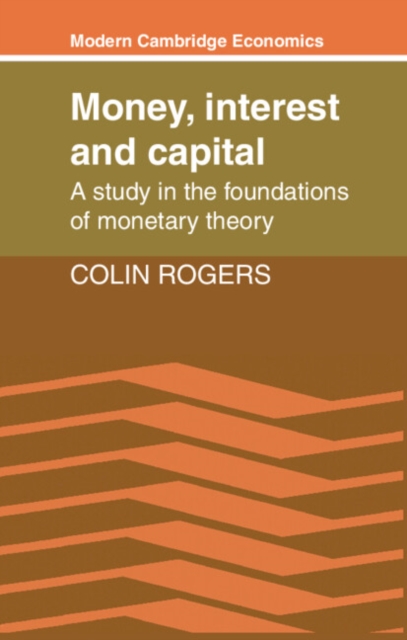
Money, Interest and Capital : A Study in the Foundations of Monetary Theory Paperback / softback
by Colin Rogers
Part of the Modern Cambridge Economics Series series
Paperback / softback
Description
This book presents a study in the foundations of monetary theory with several unique features.
It consists of two parts: a critique of the varieties of neoclassical monetary theory, and a rigorous statement of the foundations of Post Keynesian monetary theory.
The two parts reflect Joseph Schumpeter's distinction between monetary theories in the divergent traditions of Real and Monetary Analysis.
Part I offers a novel critique of Wicksellian and neo-Walrasian general equilibrium versions of Real analysis.
The critique of Wicksell's monetary theory demonstrates the general impossibility of defining the natural rate of interest without which the loanable funds theory collapses.
The critique of neo-Walrasian monetary theory, on the other hand, exploits the inessential role of 'money' in temporary equilibrium and overlapping generations models and develops a novel interpretation of the Patinkin controversy and the Clower finance constraint.
The implications of these developments are then traced through the debates between monetarists and Keynesians.
Part II presents a rigorous argument for securing the foundations of Post Keynesian monetary theory in the tradition of Monetary Analysis.
In the context of the evolution of the monetary system from commodity money to credit money.
Wicksell's natural rate of interest is replaced by Keynes's marginal efficiency of capital which is in turn applied to Myrdal's notion of monetary equilibrium to derive a formal definition of Keynes's point of effective demand. This leads to the most novel feature of the book: the demonstration of the existence of a long-run unemployment equilibrium without the assumptions of rigid wages.
The principle of effective demand is shown to break Say's Law by placing a limit on the profitable expansion of output before full employment is reached.
Information
-
Out of stock
- Format:Paperback / softback
- Pages:336 pages
- Publisher:Cambridge University Press
- Publication Date:11/05/1989
- Category:
- ISBN:9780521359566
Other Formats
- Hardback from £35.00
Information
-
Out of stock
- Format:Paperback / softback
- Pages:336 pages
- Publisher:Cambridge University Press
- Publication Date:11/05/1989
- Category:
- ISBN:9780521359566










